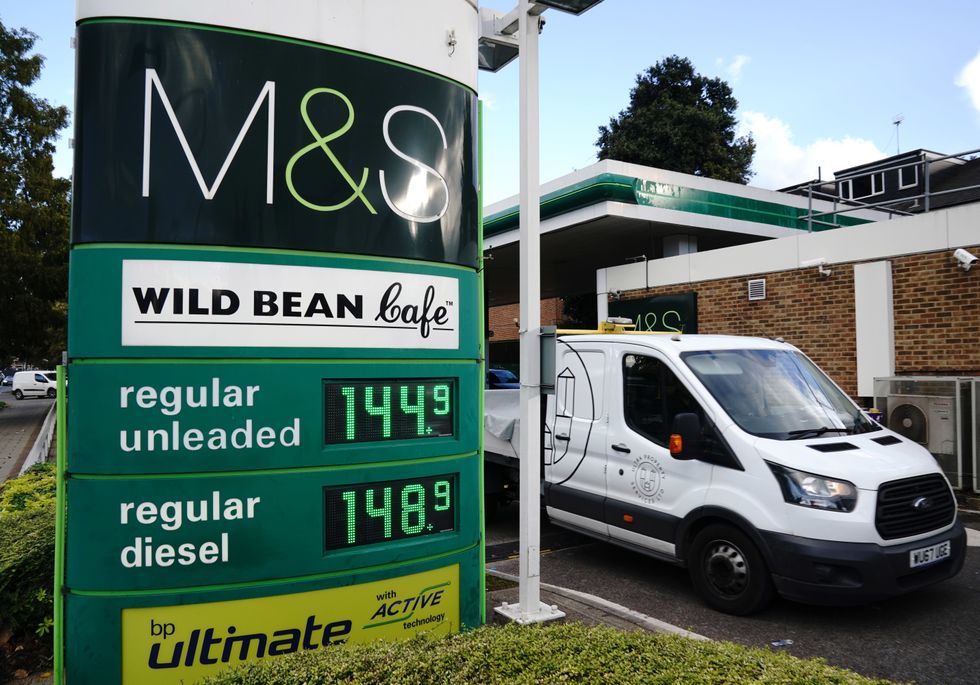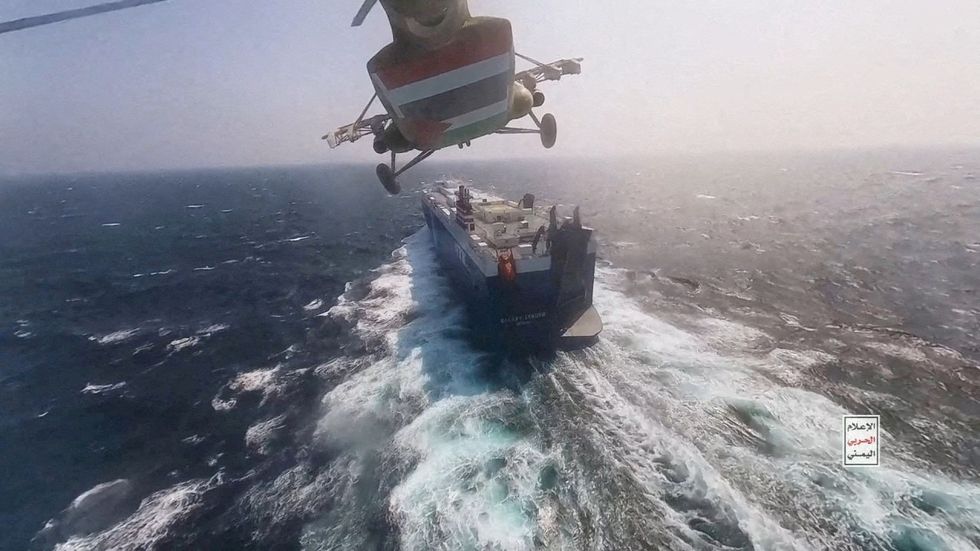Shell and BP have now suspended activity in the Red Sea following attacks and hijacking attempts
Don't Miss
Most Read
Trending on GB News
Drivers are being warned of potential petrol price hikes in the coming weeks as tensions intensift in the Red Sea and global oil companies cut back on supply.
British oil giant Shell has suspended all shipments through the Red Sea indefinitely after the growing number of attacks from Houthi rebels on shipping containers.
The company announced last week that it would take the step to halt all crossings over concerns that an attack could cause a huge oil spill in the region.
A report from Shell also acknowledged the human danger of the decision, citing fears about the safety of crews on the ships, according to the Wall Street Journal.

Petrol and diesel prices could rise in the coming days and weeks
PA
Shortly before Christmas, BP announced a pause of all shipments of oil through the Red Sea after attacks on vessels by Iran-backed Houthi rebels from Yemen.
In response to the hijacking attempts and rocket attacks from the militants, the US and UK carried out air strikes on targets inside the Middle Eastern country in a bid to deter the Houthi action.
Simon Watkins, a senior oil analyst, suggested that Iran had been planning to create “further chaos” for the United States and its allies by causing oil prices to spike.
He said: “The World Bank said at the end of October that a ‘large disruption’ in the global supply of crude oil – which it equated to between six and eight million barrels per day (bpd) – would result in a 56-75 per cent increase in prices to between $140 and $157 a barrel.
“However, as analysed by OilPrice.com at the time, a significant escalation in the Israel-Hamas War could lead to a much greater loss of crude oil supplies than that, and consequently much higher oil prices than even the top of that World Bank range.
“Following the US and UK air and sea strikes in the last few days on Iran-backed Houthi rebels in Yemen in response to a series of attacks on international shipping in the Red Sea, such a significant escalation may well occur in the next few days.”
Similarly, GB News’ Economics and Business Editor Liam Halligan warned that the cost of oil could increase given the heightened tension in the Red Sea, having further impacts on the price at the pumps.
The Suez Canal accounts for 10 per cent of global oil supplies, while the Strait of Hormuz sees 25 per cent of the world’s oil supply every day.
With the growing number of rocket attacks from the Houthi rebels and counterstrikes from the UK and United States, there are fears the price of oil could creep up.
Despite the attacks and tension, global oil rates have remained somewhat stable in recent weeks, a drastic difference compared to the Russian invasion of Ukraine.
The global price of Brent crude oil has risen three per cent over the past five days since the Houthi rebels increased the rate of their attacks.
In comparison, the price of oil jumped from $84.25 (£66.63) on February 18, 2022, to more than $109 (£86.18) on March 11, 2022, following the Russian attack.
Liam Halligan added: “If these attacks on these oil tankers and freight tankers more generally going through the Red Sea and particularly going in and out of the Strait of Hormuz.
“If those attacks escalate and we see higher oil prices and we see higher prices for all components that come from Asia to the West because boats have to divert around the whole of Africa rather than going through the Suez Canal, we will get more inflation.”
LATEST DEVELOPMENTS:

The Houthi rebel attacks have been taking place for more than a month
REUTERS
Data from RAC Fuel Watch found that petrol and diesel prices continue to fall, despite global changes around the world having an impact on oil prices.
Vincent Clerc, chief executive of Maersk, said the “significant disruption” was forcing oil companies to travel around Africa to Europe, rather than through the Red Sea.
He told the BBC that the longer route would add between seven to 14 days to the total length of the trip, as well as cost $1million (£790,000) more in fuel alone.









